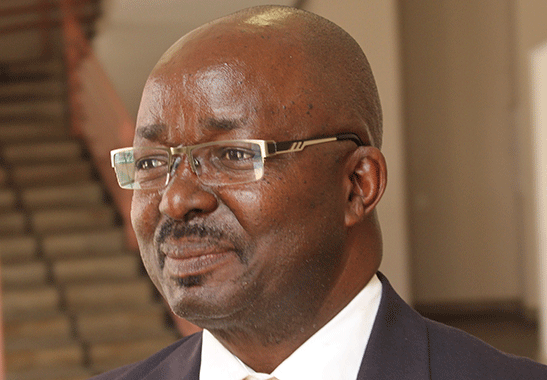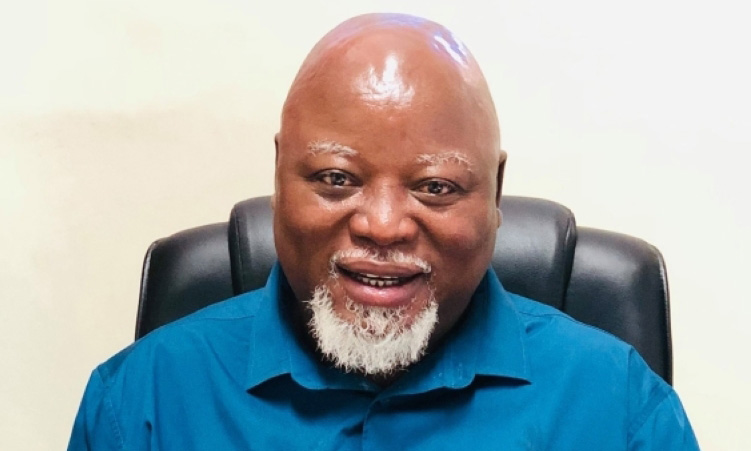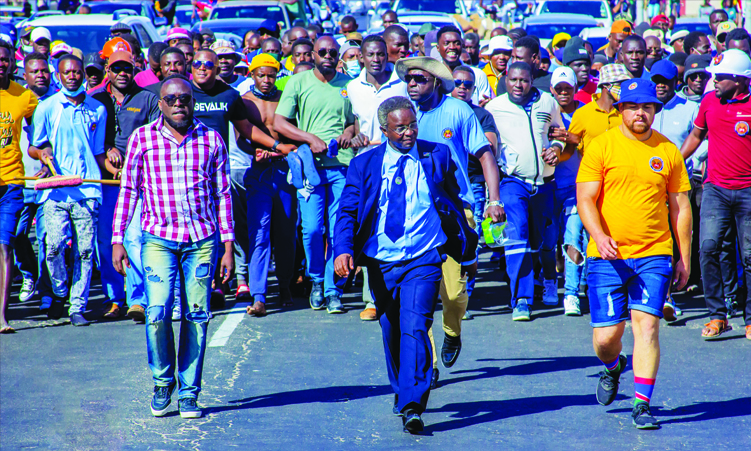The Institute for Public Policy Research (IPPR) warns that unless young people can be persuaded to take an interest in Namibian politics, the country is likely to see low election turnout.

IPPR executive director Graham Hopwood says young people could have a strong influence on the outcome of this year’s election.
“At the moment it seems many do not see voting as important,” he says.
Hopwood’s comments come after an Electoral Commission of Namibia (ECN) report emphasised the worrying trend of voters showing a lack of interest in Namibian elections.
For instance, 532 287 out of 1,3 million eligible voters did not cast their votes in the 2019 national elections. This is compared to 18 600 who did not turn up to vote in 1989.
Hopwood says much more voter education needs to be undertaken by the ECN, political parties and civil society.
“At the moment, for example, I don’t think many people know they will have to register to vote again this year, because we will have a completely new voters’ register,” he says.
He says unless young people can be persuaded to take an interest in Namibian politics and political issues, the country is likely to see voter turnout levels continue to decline.
In 1994, 650 200 people registered to vote, but only 497 500 cast their votes.
The turnout dropped to 76,1%, followed by 62,1% in 1999, when 878 870 voters registered to vote, but only 545 460 cast their votes.
There were slight surges in 2004, when 833 100 out of 977 700 voted, and in the 2009 elections 1,1 million people registered to vote and 812 233 voted.

Participation dipped again in 2014, when 1,2 million people registered to vote, but only 875 232 participated in the elections.
Rally for Democracy and Progress president Mike Kavekotora says the ECN is “sleeping on duty” as it is allocated a budget to educate the public on the importance of voting, yet voter turnout is declining.
“They should stop blaming Jesus Christ and everybody else. They must start doing their job. They can’t sleep on their job,” he says.
ECN chairperson Elsie Nghikembua yesterday promised to respond to a request for comment today.
Political analyst Wade Henckert says high levels of poverty, unemployment and inequality undermine citizens’ confidence in the ability of political leaders to address their needs and aspirations.
He says economic hardships and social marginalisation deter many Namibians from engaging in the electoral process.
Henckert says instances of corruption, political infighting, and governance failures have eroded public trust in political institutions and leaders, and could be some of the reasons why people are reluctant to vote.
“The lack of accountability and transparency in the political sphere contributes to voter disillusionment and apathy in Namibia,” he says.
Henckert says the ECN may consider extensively educating the public on the value of voting, their rights, and the political process, including several extensive civic education initiatives that may take place across the country.
“Provide communities with the information and resources they need to participate actively in democratic decision-making,” he says.
“It is essential to launch comprehensive civic education and voter awareness campaigns across the country. These campaigns should target communities, schools, and workplaces to ensure that every Namibian understands the importance of voting, their rights as citizens, and the mechanics of the electoral process,” he says.
Popular Democratic Movement parliamentarian Maximilliant Katjimune says his party is deeply concerned about voter apathy experienced in both presidential and National Assembly elections, as well as regional council and local authority elections.
“This points to the fact that a significant portion of the electorate has become disillusioned and has lost hope in the political establishment, especially with the ruling Swapo party,” he says.
Katjimune says it is important for voters to be aware that there is an alternative to Swapo, and that opposition parties such as the PDM represents that alternative.

Katjimune urges voters to come out in numbers and cast their votes in the upcoming elections.
“Voter education and mobilisation should be rolled out extensively, not only on the side of the ECN, but also from political parties and civil society at large,” he says.
Political analyst Ndumba Kamwanyah says voter apathy is caused by politicians promising the electorate heaven and earth and not delivering.
“As a result, many have lost hope. It doesn’t really matter to wake up and go to the polling station when you know there is no viable alternative either from the ruling party or the opposition political parties. That in itself is a huge factor that could send voters away,” he says.
The Namibian in December last year reported that the Namibia Institute for Democracy (NID) embarked on a 33-month long project dedicated to enhancing inclusive participation in democratic processes through civic education.
NID director Naita Hishoono at the time said civic education is important, because studies and practice have shown Namibia is a democratic country, but with few democrats.
Meanwhile, political parties recently vowed to address voter apathy.
Speaking to New Era, Swapo Party Youth League (SPYL) secretary Ephraim Nekongo said his party will soon present its election manifesto, which demonstrates its commitment to ensuring young people are part of decision-making processes.
“We are aware of the regrettable youth unemployment rate, hence our commitment to ensure we address this through various deliberate interventions. Our presidential candidate, Netumbo Nandi-Ndaitwah, is on record that she is ready to work with the youth in her administration.”
National Unity Democratic Organisation secretary general Josef Kauandenge attributes the low turnout of youth voters to the absence of youth representation in the political leadership.

“For the youth to get involved in politics, they must be energised, they must feel a sense of belonging. But how can this happen if we don’t see youthful faces among the top leadership of political parties?” he asks.
Kauandenge urges political parties to empower and put youthful leaders in top leadership positions to attract young voters.
Also speaking to New Era on the issue, LPM youth command leader Duminga Ndala attributed voter apathy to a lack of political awareness and consciousness.
“It is imperative that political parties engage in such programmes to maximise our campaign on social media platforms. We live in a technological era, where social media has captured the hearts of especially young people.
“There is a high unemployment rate in the country, as well as a housing crisis. Political parties should offer pragmatic solutions on how to address these crises,” Ndala said.
Stay informed with The Namibian – your source for credible journalism. Get in-depth reporting and opinions for
only N$85 a month. Invest in journalism, invest in democracy –
Subscribe Now!






